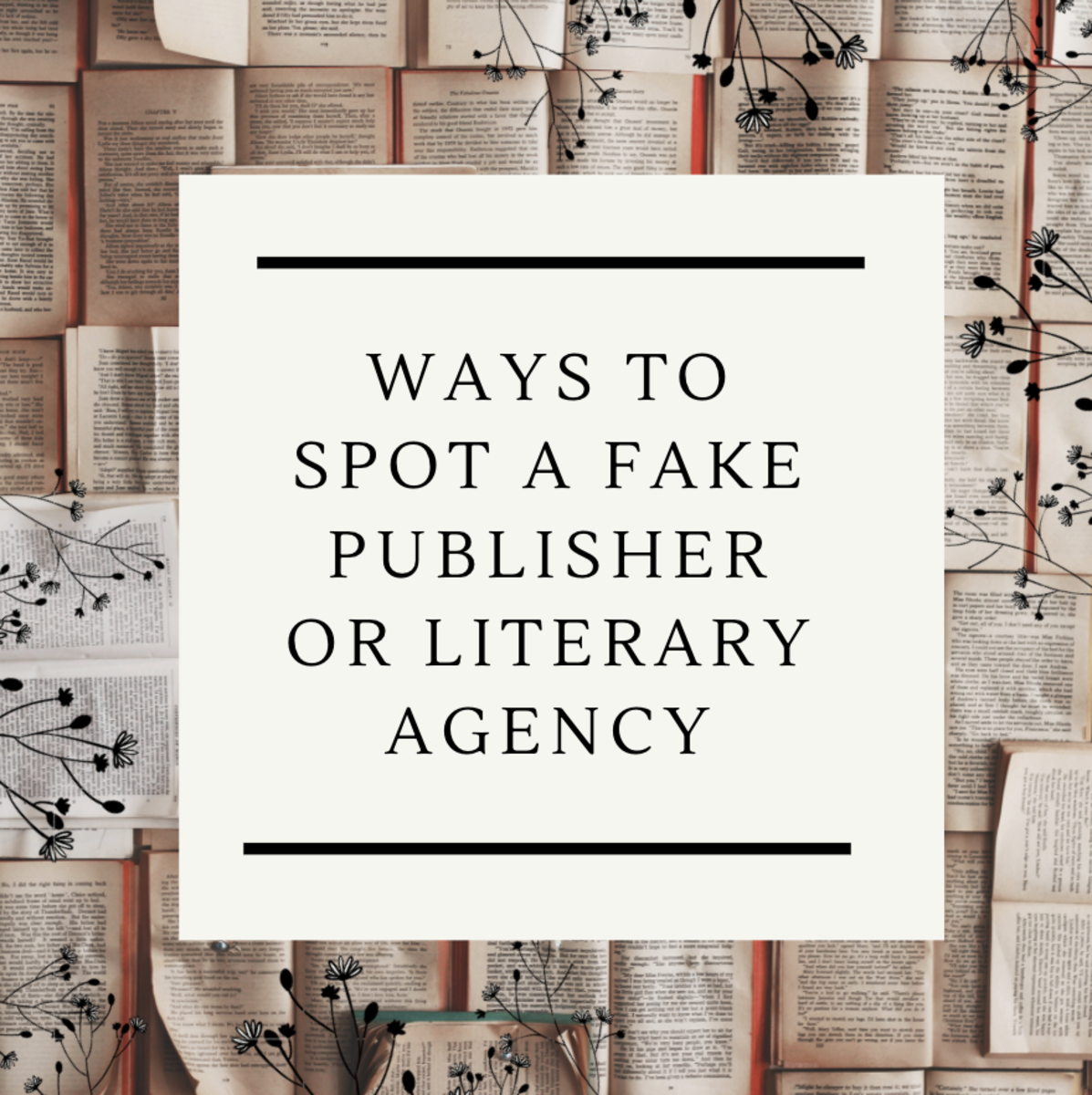- HubPages»
- Books, Literature, and Writing»
- How to Write»
- How to Get Published
The Two Types of Publishing Actions, part 2
There's Plenty of Doors to Unlock for Publishing

The Big Picture
A decade ago, I wrote about the first conference workshop class I took about the different types of publishing actions. Now, here’s the second half on those two other kinds of publishing actions to take after you edit your book.
There's no longer any “right” way. Though this is the beginning, you'll need to do a lot of research.
Important Questions
Before you get started on your publishing journey, you need to ask yourself these important questions:
Why do you want your book published? What’s the goal? Money? Simply to be read? To supplement your platform or business? As a free resource?
How much proven ability do you have to market? (This is called platform.)
Who’s your audience, and how do plan to reach them?
How much time and effort can you put into everything?
Traditional Publishing
It’s up to you, if you want an agent or not. You can aim for a small or big house. Don’t listen to everyone about publishing.
Here are the pros of querying an agent and/or an editor: The money flows right to you with no upfront costs. An editor will edit for you for free. They may help you sell subsidiary rights. They might assign a publicist for you. They'll make it available in an e-book. They keep track of sales and pay you. It carries an air of important legitimacy—a couple of examples are receiving book blurbs, endorsements, media attention, accolades, and awards. You can always self-pub later. You’ll get a royalty statement twice a year. So try traditional publishing first.
If you’re repped by an agent now, it depends on the publisher's schedule. It might land on a certain month, 1-3x a year. Your book could be published in spring or fall 2023 or in 2024.
On the downside, here are the cons for choosing this publishing route: It moves slow, and much is out of your hands. Nonfiction demands a platform. Payment’s good at first but bad later. Not many fiction novels are published; there’s confines of genres and length. You’re at the whim of others.
Here are the next steps if you wish to pursue this goal. For fiction, finish the book. For nonfiction, compose a nonfiction book proposal. Query agents or editors when you’re ready.
Self-Publishing
If you wish to self-publish your novels, here’s some information for you to keep in handy.
On the plus side, there’s a lot of options exist for print books and e-books. There’s a lot of speed. It shows how you’re in control. You can work in different places (nonexclusive rights). You would receive better royalties. The length and genre no longer matter. The most necessary stuff is still handled for you; you can negotiate and compare offers/elements.
For the minuses, having too much control can be bad. The quality will be inferior. The stigma of being a self-pubbed author. You pay THEM and have no help with subsidiary rights. It’ll be tougher with bookstores, libraries, book fairs, and reviews. The biggest problem is visibility and promotion for those who don’t have a platform.
Your new steps will be looking at self-pub services like CreateSpace and SmashWords.
Hybrid Publishing
If you want to try the best of both worlds, consider hybrid publishing. It’s a mix of both to finding your right marketplace. A couple examples of hybrid publishing is when an author whose career started with traditionally published books to try self-publishing. From there, the author publishes some books traditionally and self-publishes other books. (Erica Spindler does both.)
An author who has self-published several books is picked up by a traditional publisher. An author might get a traditional book deal for print publishing, but continue to self-publish e-books, retaining all digital rights and royalties.
Because they can sign authors who have already self-published and establish an audience, publishers benefit from hybrid publishing. A lower-risk investment, because they know the books will sell to existing readers and fans. Every niche author is a risk for a publishing author, when there’s no way to tell which books will make the best-seller lists, and which ones will bomb. It’s less likely that a book will suffer low sales, because there’s an audience ready, willing, and able to buy under this model.
This content is accurate and true to the best of the author’s knowledge and is not meant to substitute for formal and individualized advice from a qualified professional.
© 2016 Kristen Howe








